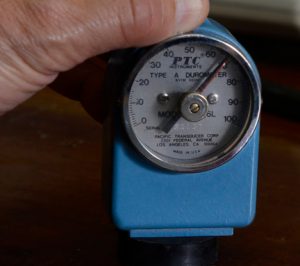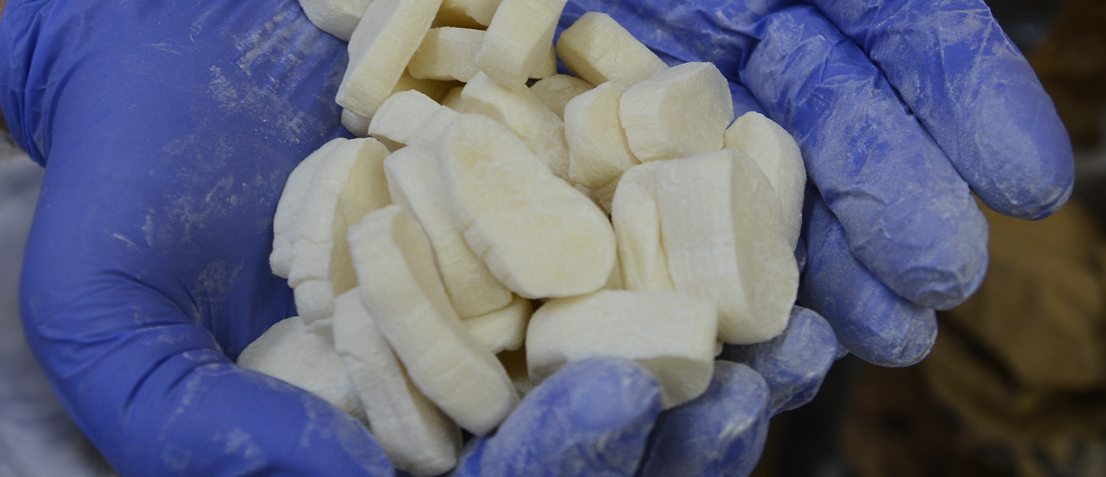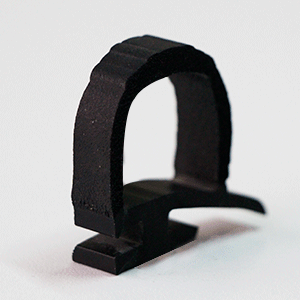Although there are relevant differences between plastic and rubber, these materials can share many performance properties, which is why both are viable options for engineers. Taking into account both materials guarantees the best performance, production and price for your project’s needs.
When to Use Plastic
When a component requires hardness or rigidity, rubber simply can not compete with plastic materials. Rubber compounds can generally achieve a maximum durometer or a Shore A rating of 90.
When to use rubber

The rubber reaches a Shore A hardness of 90.
Rubber is indicated for dynamic applications where compression properties are important. Also, it can surpass many general use plastics in hostile operating environments..
Temperature range of silicone components, for example, can reach up to 250°C. That is significantly higher than the maximum range of plastic materials. Additionally, EPDM is a relatively low-cost rubber which offers excellent resistance to UV rays, weather and ozone, and is ideal for outdoor applications.
Rubber can resist certain chemicals better, but this has to be analysed case by case. When the qualities of sound and vibration dampening are important, rubber is the best choice.
Rubber and plastic bonding
An application often requires a component with rigid and flexible features.
For example, a closure can have a rigid portion which is inserted in a channel and a flexible bulb that achieves dynamic sealing properties. As rubber and plastic are not compatible to be coextruded, they can be joined through a mechanical connection. This frequently implies fitting a plastic extrusion to a rubber component using holders such as plastic rivets.
Even though it can be done this way, the best alternative for these cases is a piece combining different rubber densities, such as bicomponent weatherstrips, disregarding plastic. It will thus offer a high-density base that fits firmly in one channel and a spongy part that enables appropriate dampening or hermetic sealing.







Agradecería que me respondan una consulta.
Que perfil o burlete, y de qué material tendría disponible para el borde interno de una circunferencia de 20 cm.? O qué me pueden recomendar.
Gracias
Miguel Osuna
Hola Miguel Ángel, gracias por escribirnos.
Ya le enviamos la información vía email.
Regards!